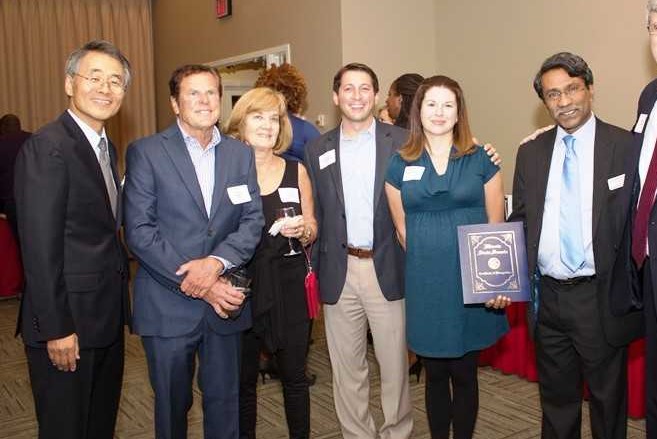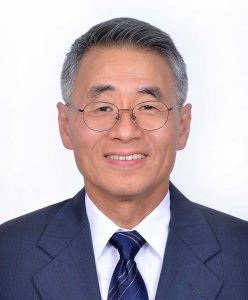Political science professor T. Y. Wang is an engaged leader at Illinois State University. As a professor, researcher, and chair of the Department of Politics and Government, he, like many faculty, fulfills multiple roles on campus. Due to his extensive research and knowledge on East Asian politics, Wang has been recognized with several awards, most recently the university’s Outstanding College Researcher Award in 2015.
Politics piqued Wang’s interest during college because politics impacts society. But he prefers studying politics to becoming a politician.
“The most rewarding experience is when you teach some very good students.”—T.Y. Wang
“Examining how the politicians or how the national affairs, how the policy is being made, to me, is more intriguing than getting myself involved in the actual politics,” Wang said.
Wang obtained a bachelor’s degree in public administration from National Chung Hsing University and a master’s in political science from National Taiwan University before going to The State University of New York at Buffalo to earn a Ph.D. in political science.
“My education equipped me with the tools and knowledge and curiosity to study political science,” Wang said.
Wang chose an academic career as he relished the intellectual challenge. He researches issues related to national identity and political division in East Asia.
“I also examine U.S.-China relations, particularly U.S. policy towards China and towards Taiwan,” said Wang. “I also focus on China and Taiwan relations.”
Wang’s expertise has often benefited others. For example, he was interviewed by the Chicago Tribune for an August 2017 article on a potential nuclear threat from North Korea. Wang has been an invited speaker at numerous conferences and programs. He has authored and co-authored dozens of publication related to East Asian politics.
As an active faculty member on campus since 1990, Wang has chaired multiple search committees. He was the associate director of the Office of International Studies and Programs from 2007 to 2012 and the associate chair of the Department of Politics and Government from 2007 to 2017. Wang has been the co-editor of the South-East Asia Journal of Asian and African Studies since 2004 and is also a board member for the American Association for Chinese Studies.
Wang became chair of the Department of Politics and Government in 2017. He acts as a manager, providing leadership while dealing with day-to-day duties. Wang also serves as an advocate and academic leader for the department. He is taking a brief break from teaching while serving as chair.
Wang cites mentoring bright and motivated individuals as his proudest accomplishment. “The most rewarding experience is when you teach some very good students, a student challenging you in the classroom,” Wang said.
He finds it touching when a former student takes the time to email or send a letter.
“Many of our students are very productive citizens in society,” said Wang. Students from the department have become senators and representatives, and many have gone on to work in state and city government or with nonprofit organizations.
“ISU is getting better and better every year and that’s the reason why, after twenty-some years, I very much love this institution.”—T.Y. Wang
Wang shares his expertise as a member of the Stevenson Center executive board, and many Stevenson Center students have studied with Wang over the years. The Department of Politics and Government was a founding partner ofthe Stevenson Center’s interdisciplinary graduate programs in 1994.
Wang sees a lot of growth and improvement happening on campus, including within his own department.
“ISU is getting better and better every year and that’s the reason why, after twenty-some years, I very much love this institution and would like to stay here,” said Wang.
Wang and his wife enjoy hiking and often visit national parks.
Sarah Aten is the Stevenson Center’s public relations intern.


